 |
| Image credit – UC Davis Health |
CANCER DIGEST – Dec. 26, 2021 – New research shows promise of significantly limiting one of the most severe complications of stem cell transplants for cancer, called graft vs host disease.
 |
| Image credit – UC Davis Health |
 |
| RAS Mutations in green were found to be immunotherapy sensitive |
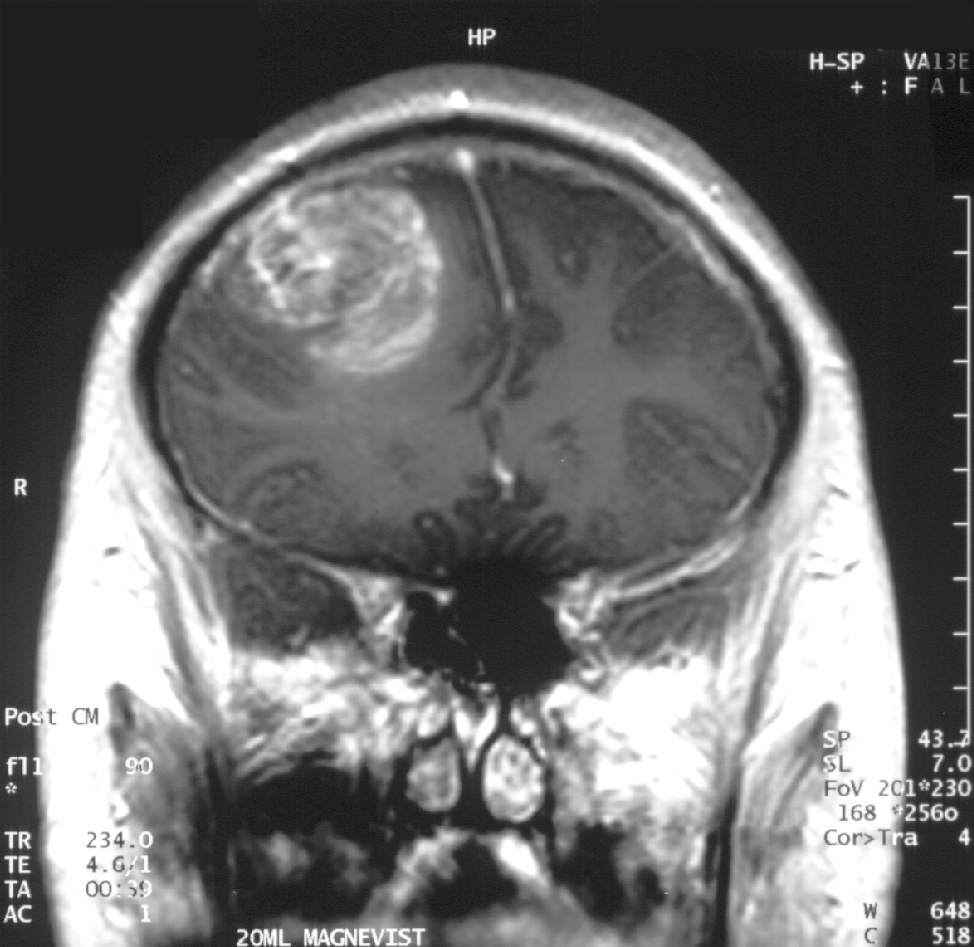 |
| MRI of glioblastoma – photo credit Wikipedia |
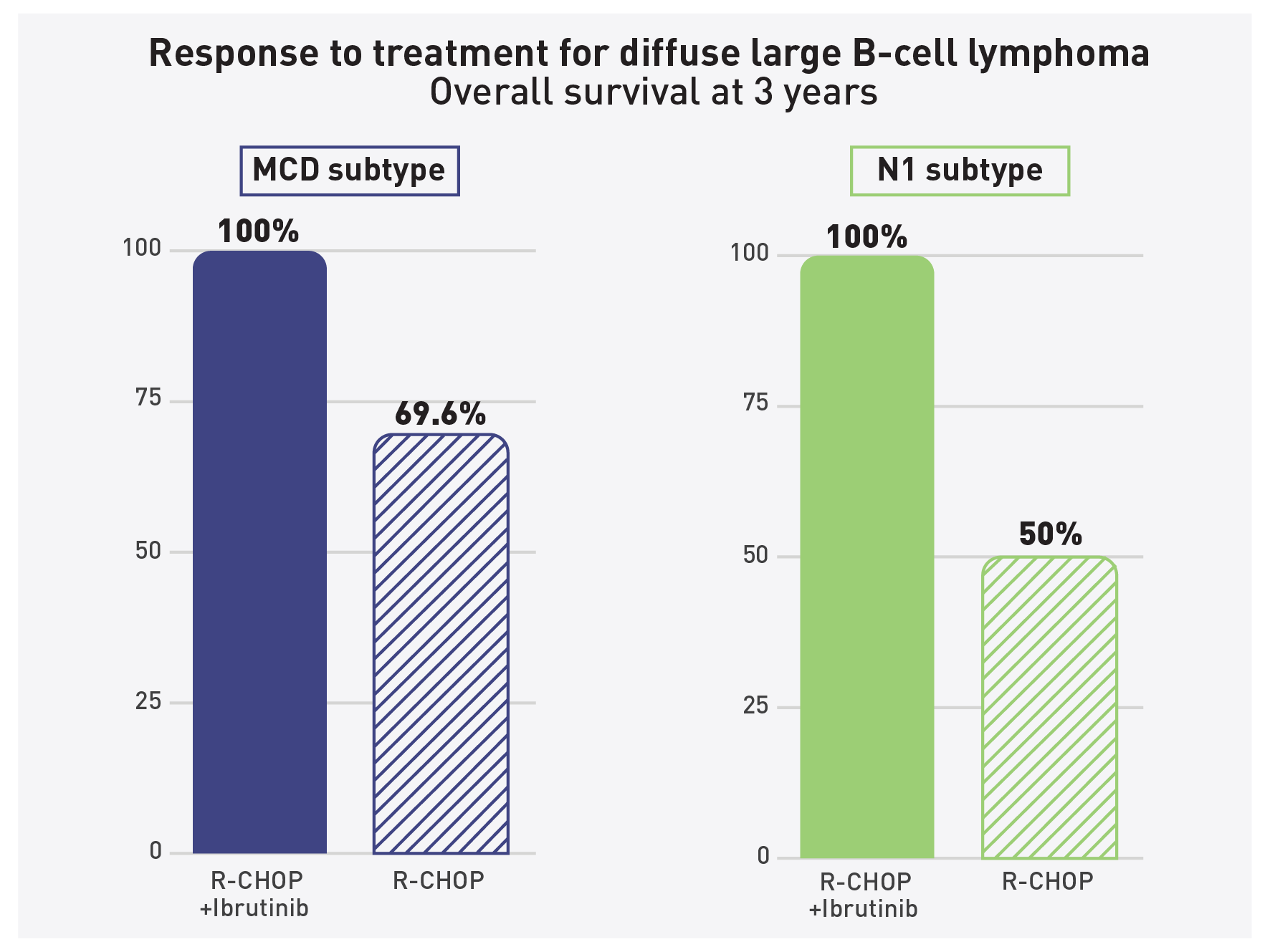 |
| The addition of ibrutinib to R-CHOP chemo- therapy improved overall survival among trial participants aged 60 and younger. – Credit NCI |
 |
| Photo credit – University of Georgetown Media Department |
 |
| Photo credit – Vijay.shivu via Wikipedia Creative Commons |
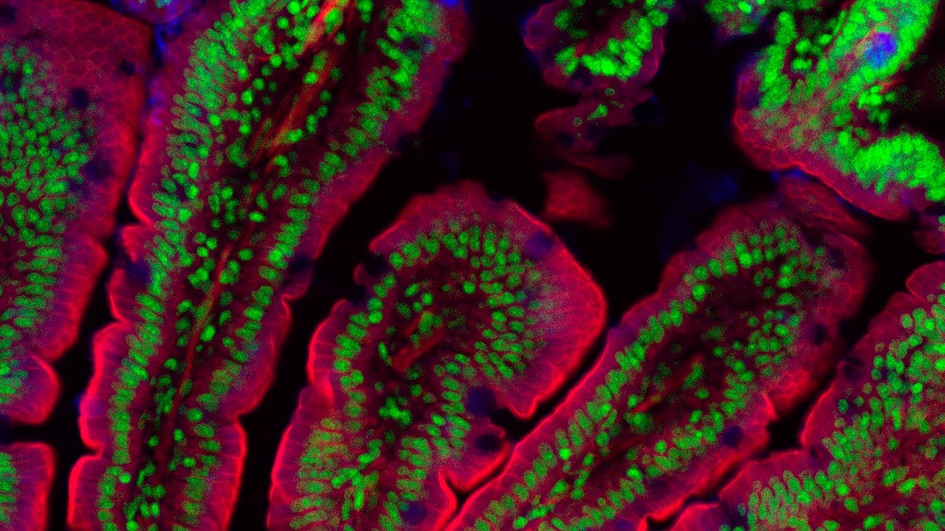 |
| Section of a mouse gut. Credit–Kevin Mackenzie, University of Aberdeen |
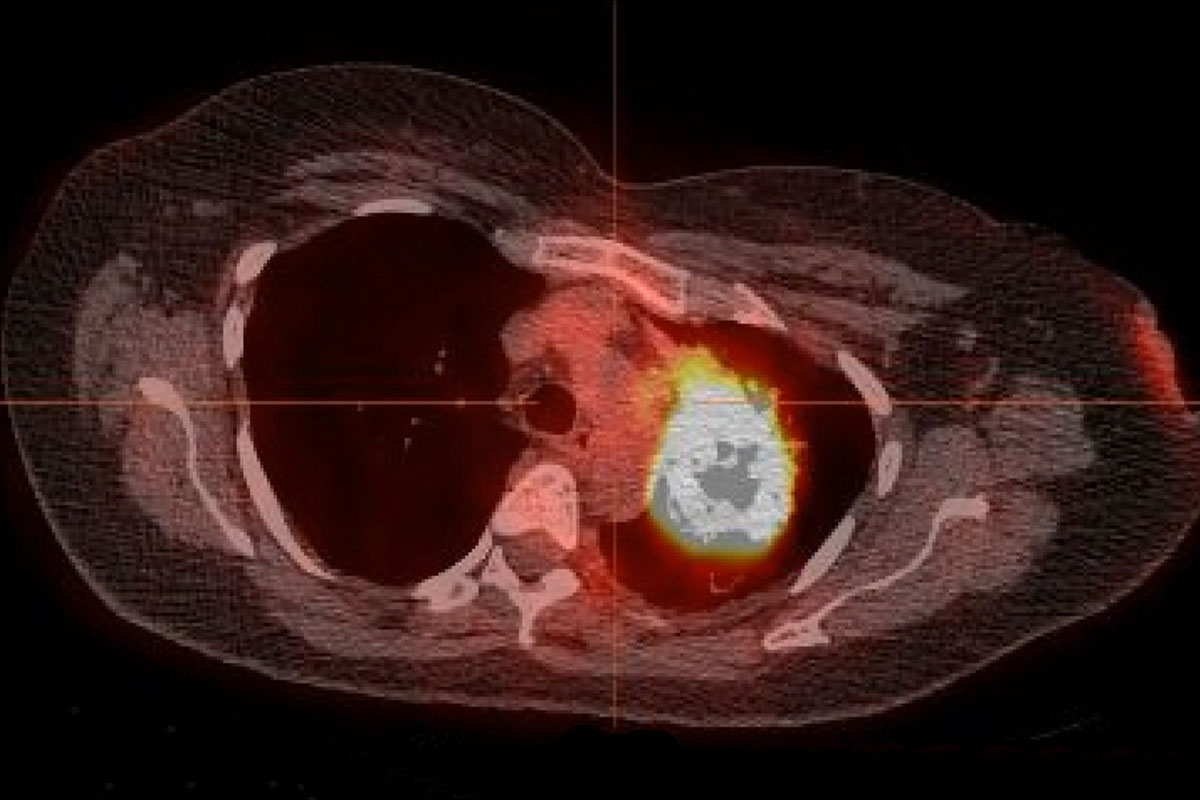 |
| An image of a lung tumor in a patient who never smoked Image credit Washington University |
 |
| The study suggests that the presence of a certain type of bacteria called B. fragilis might push gut tissue toward inflammation rather than protect from it. |
CANCER DIGEST – Aug. 14, 2021 – A new blood test algorithm developed in Sweden combined with MRI could be used for effective prostate cancer screening, say researchers at the Karolinska Institute.
CANCER DIGEST – July 10, 2021 – Nearly all cancer patients in a US and Swiss study developed an adequate immune response to COVID-19 following the second dose of vaccine, a new study shows.
 |
| Click for OlympiA Clinical Trial video |
 |
| Click to play video |
 |
| Image credit MD Anderson |
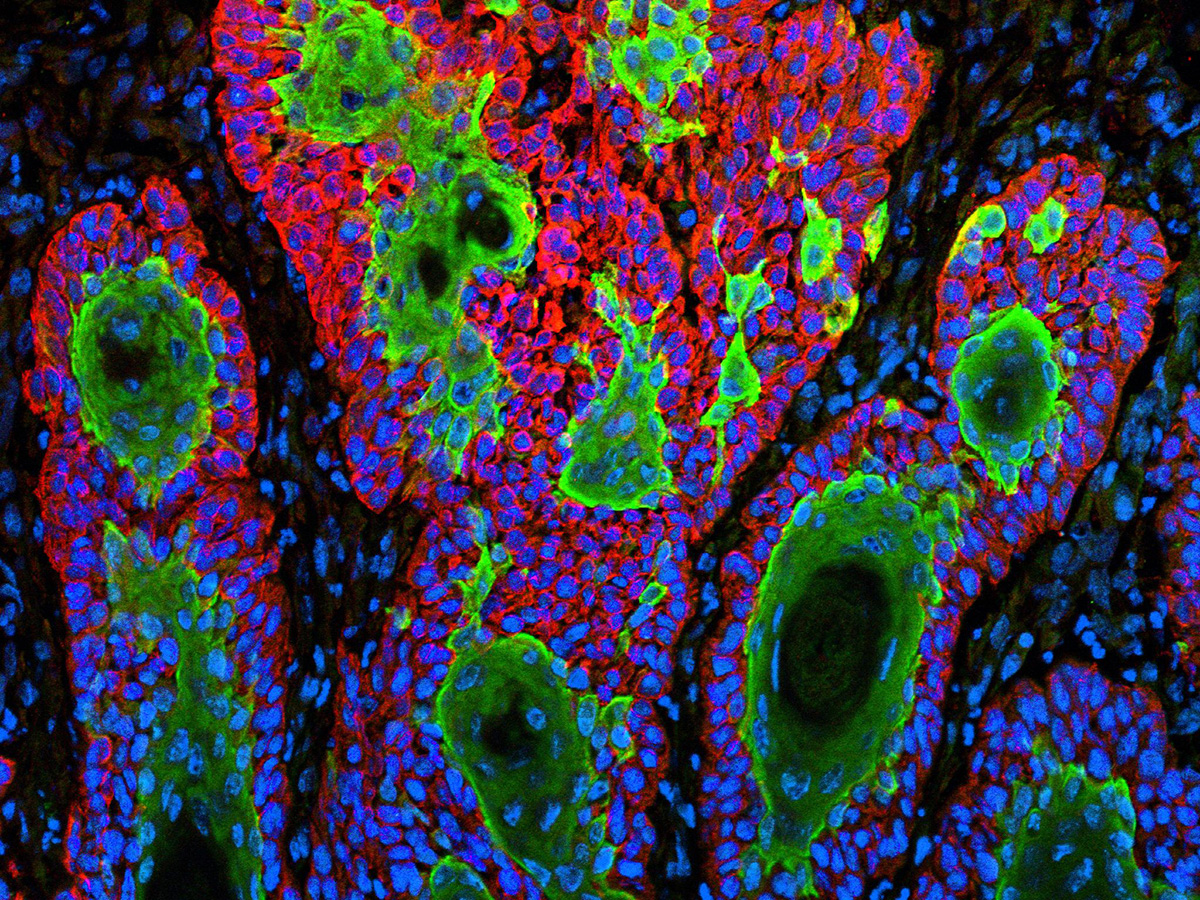 |
| Image credit – Ohio State University |
 |
| The diagram above represents the process of chimeric antigen receptor T-cell therapy (CAR). Image credit – Reyasingh56 via Wikipedia Creative Commons license. |
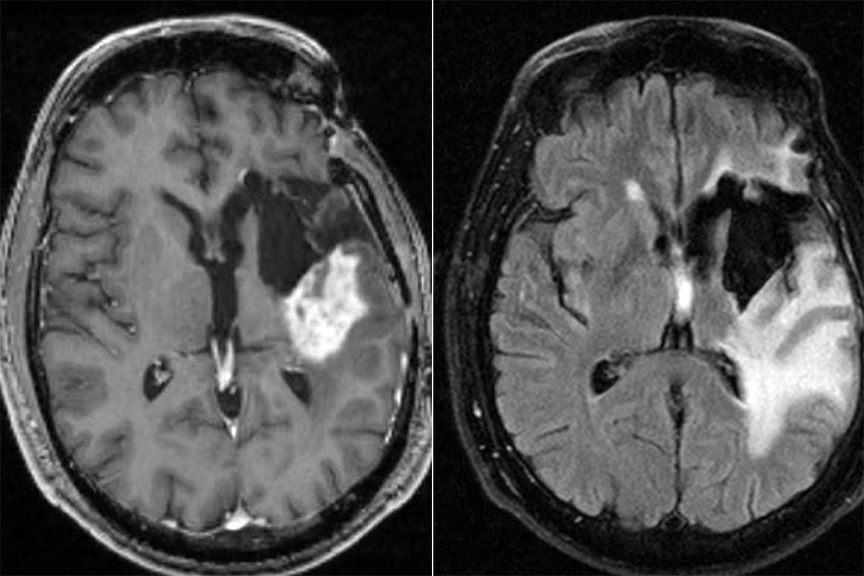 |
| Photo credit – Washington University School of Medicine |
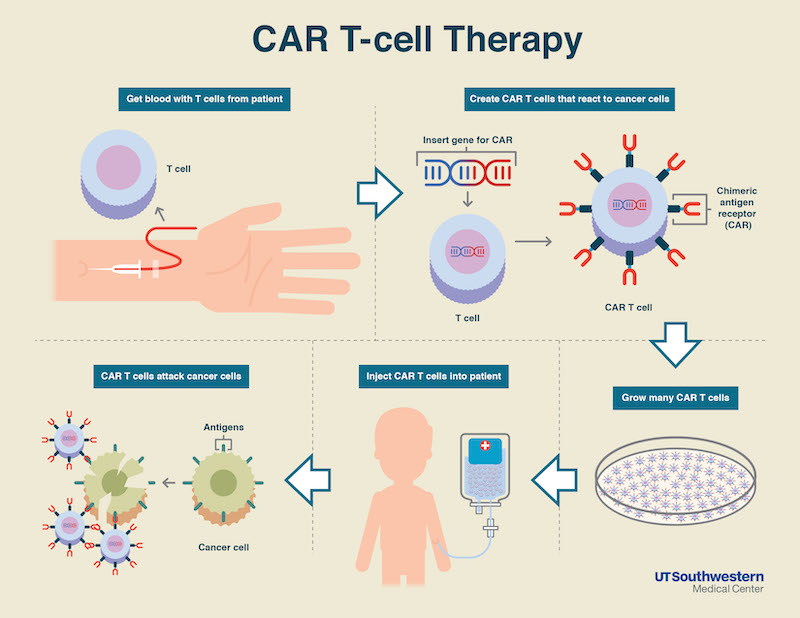 |
| Illustration of CAR T-cell therapy courtesy of UT Southwestern Medical Center |
 |
| Photo credit – Washington University news |
 |
| Zhi-Ren Liu, Professor Biology |
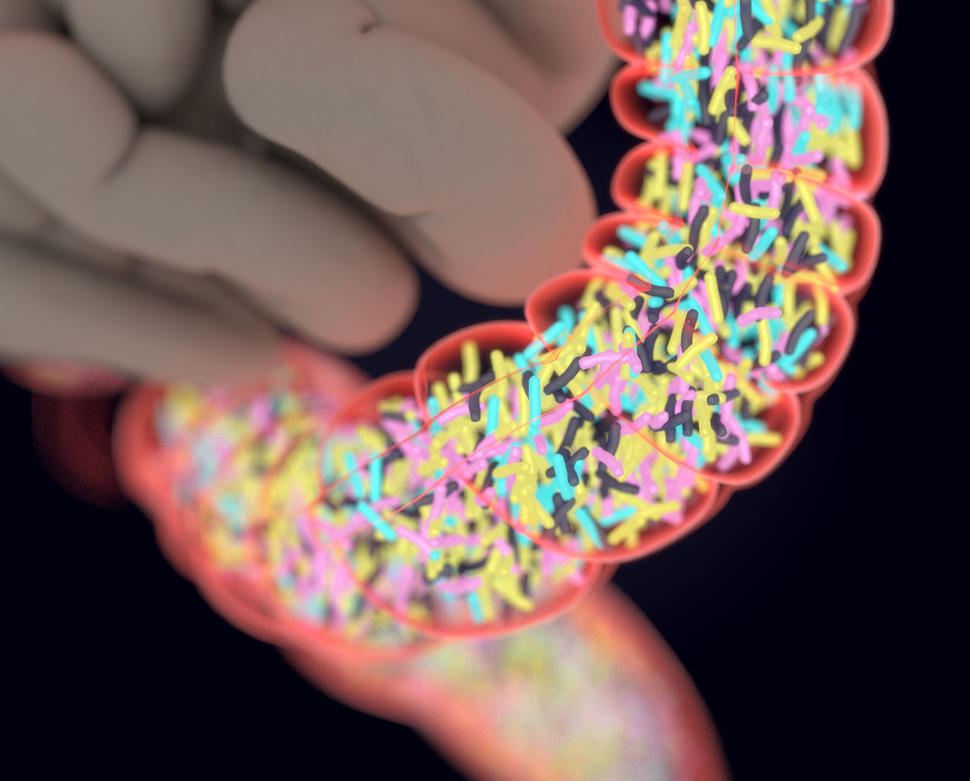 |
Introducing certain fecal microorganisms into a patient’s colon may help the patient respond to immunotherapy drugs. Credit: iStock |
.jpg) |
| Patrick Ott, MD, PhD and Cathy Wu, MD photo credit– Dana Farber |
 |
| Photo credit MD Anderson news |
 |
| Photo courtesy of Penn State News |